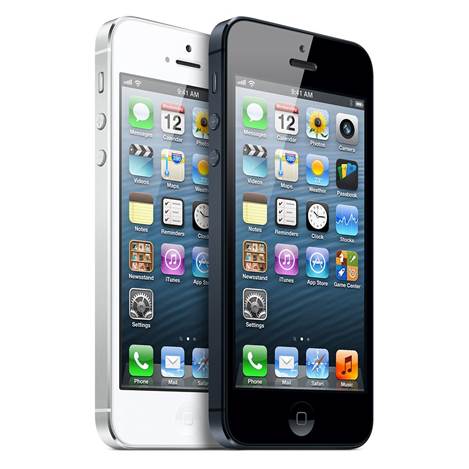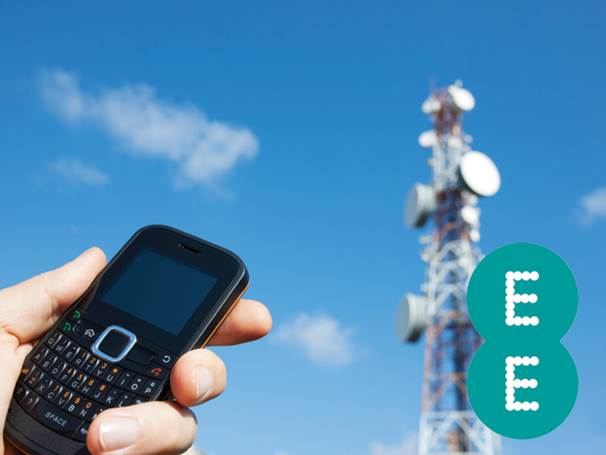We’re not going to be seeing 4G reach of 98%
of the population until the of 2014
Now look at what happened after that.
Hutchison Whampoa’s 3 network remains intact. Orange was bought by France
Telecom; BT Cellnet became O2 and, in 2005, it was bought by the Spanish
telecommunications company Telefónica; One2One, which was bought by Deutsche
Telekon a year before the auction, changed its name to T-Mobile in 2002. Only
Vodafone has remained a British company.

Only
users on the EE network will benefit from 4G
However, this is more than a lesson in
European companies taking over British ones. That $36bn was a major burden on
UK telecom firms (and it has to be said that the German one fetched even more
money) and it pulled a lot of investment away from infrastructure. Ideally,
that cash would have been diverted into providing better services and boosting
the networks and their ability to compete effectively.
So why have lessons not been learned? Why
are we sitting here with a 4G auction getting underway that will drag more
billions out of the system? Already the system has been badly dealt with,
leaving only EE happy and all it’s doing is putting all the power in the hands
of one company for the time being and making its rivals wait, losing valuable
innovation and investment time in the process.
It was quite clear from the start that the
networks would not find a happy medium. There is barely enough spectrum for all
four UK operators and none of them really wanted to be dragged into the
auctioneering that proved so damaging the last time.
There’s an argument that perhaps the mobile
phone companies should have avoided all of this completely and stuck with 3G,
spending the cash on increasing the coverage of the third generation and using
the spare capacity - of which there is enough - to see them through for a few
more years.
With Wi-Fi becoming such a force and talk
of setting up UK-wide Wi-Fi hotspots and public Wi-Fi initiatives, steps have
been taken towards realizing the dream of a countrywide Wi-Fi network, albeit a
rather disjointed one. Accessing Wi-Fi in busy towns and cities is relatively
easy - you’re often no more than a coffee shop or fast food outlet away - and
it’s rather telling that the 4G roll out will be equally limited.
EE will launch the UK’s first mobile 4G
network in London, Birmingham, Cardiff and Bristol first and another 12 cities
by the end of the year. According to EE, this will cover a third of the UK
population. However, we’re not going to be seeing a reach of 98% of the
population until 2014 and even then, this is dependent on it winning a
sufficient part of the 900MHz spectrum available in a forthcoming auction. Woe
betide those living in northern Scotland and parts of eastern England too. They
will miss out on the initial 4G roll out.
27 million customers will potentially
benefit from speeds that are up to five times faster than 3G
Perhaps the cash would have been better
spent on Wi-Fi. It’s growing in popularity and people with 4G will no doubt
still seek Wi-Fi in order to conserve their data. In 2007, just 700,000 people
used Wi-Fi hotspots according to a report by the Office of National Statistics.
In 2010, that had grown to 4.9 million. It said that represented 13% of
internet users, connecting in restaurants, cafes, hotels, airports and many
more locations. It begs the question why companies are rolling out 4G rather
than sorting out the Wi-Fi coverage? Vodaphone is spending $40bn across Europe
on its 4G network and yet analyst Mobidia says 70% of smartphone internet
traffic is via Wi-Fi in the UK and Informa says just 19% is via a mobile
network. People are wary of the data plans, Wi-Fi is faster and people like the
convenience.
Not everyone is unhappy at the way
things are turning out
Then again, would the country not benefit
more from the massive windfall secured on the back of the auctions? Again we
should go back to 2000 when the $36 billion windfall amounted to $640 per
person in the UK. Instead of going all out and splurging the cash on millennium
projects - at a time when the country was relatively buoyant - Chancellor
Gordon Brown used the money to pay off national debt. That said, the cash
wasn’t even handed out up front, with license winners having the option of
paying in instalments over 20 years, paying just half straight away.

Confederation
of British Industry (CBI) believes the roll-out out of 4G by EE will be a boost
for UK business.
With the country in a financial mess and
debt needing to be reduced, the money generated from the new auction will not
go into boosting technology or creating a better climate for business. Most
likely, it will be ploughed into paying off national debts.
Still, not everyone is unhappy at the way
things are turning out. The Confederation of British Industry (CBI) believes
the roll-out out of 4G by EE will be a boost for UK business. “The availability
of 4G by EE by the end of the year will be a huge improvement. We always hear
from businesses that any improvement in bandwidth and connectivity can have a
rapid improvement on their businesses operations,” said John Cridland,
director-general of the CBI. However, he incorrectly stated that it would help
rural areas, but they don’t appear to be part of the immediate plan.
A CBI survey, however, showed that 79% of
the 568 respondents said they were confident or somewhat confident the next
five years will see improvements in the digital networks in the UK. 27% said
they thought the UK is below average when its infrastructure is compared to
overseas rivals.
It was a shrewd observation, for while it
is utterly vital that a solid digital network is created - and we must applaud
the introduction of 4G - it cannot be at any expense. It cannot be in place of
other technologies and services. The way the auctions have been run so far
suggests things are not quite as smooth and pre-planned as you would hope, so
we can only sit back and wait, hoping that 4G doesn’t stretch phone companies
so much that we all suffer.
How fast is 4G?
|
|
3G
|
4G
|
|
Data Throughput
|
Up to 3.1 Mbps
|
3Mbps to 5Mbps but potential estimated at
a range of 100Mbps to 300Mbps
|
|
Peak Upload Rate
|
50Mbps
|
500Mbps
|
|
Peak Download Rate
|
100Mbps
|
1Gbps
|
|
Switching Technique
|
Packet switching
|
Packet switching, message switching
|
|
Network Architecture
|
Wide Area Cell Based
|
Integration of wireless LAN and wide area
|
|
Services And Applications
|
CDMA 2000, UMTS, EDGE etc
|
Wimax2 and LTE-Advance
|
|
Forward Error Correction (FEC)
|
3G uses Turbo codes for error correction
|
Concatenated codes are used for error
corrections in 4G
|
|
Frequency Band
|
1.8 - 2.5GHz
|
2 - 8GHz
|
Download Speeds
These speeds are hypothetical in that they
depend on where you are, what kind of device you have and the signal strength,
but they indicate the sort of time you can expect to wait when downloading
files of different sizes.
|
|
100KB
|
250KB
|
500KB
|
1MB
|
1GB
|
|
56k Modem
|
15 seconds
|
36 seconds
|
1 minute
|
2.5 minutes
|
1 day 18 hours
|
|
3G
|
<1 second
|
6 seconds
|
12 seconds
|
25 seconds
|
7 hours
|
|
4G
|
<1 second
|
1 second
|
3 seconds
|
5 seconds
|
1.5 hours
|